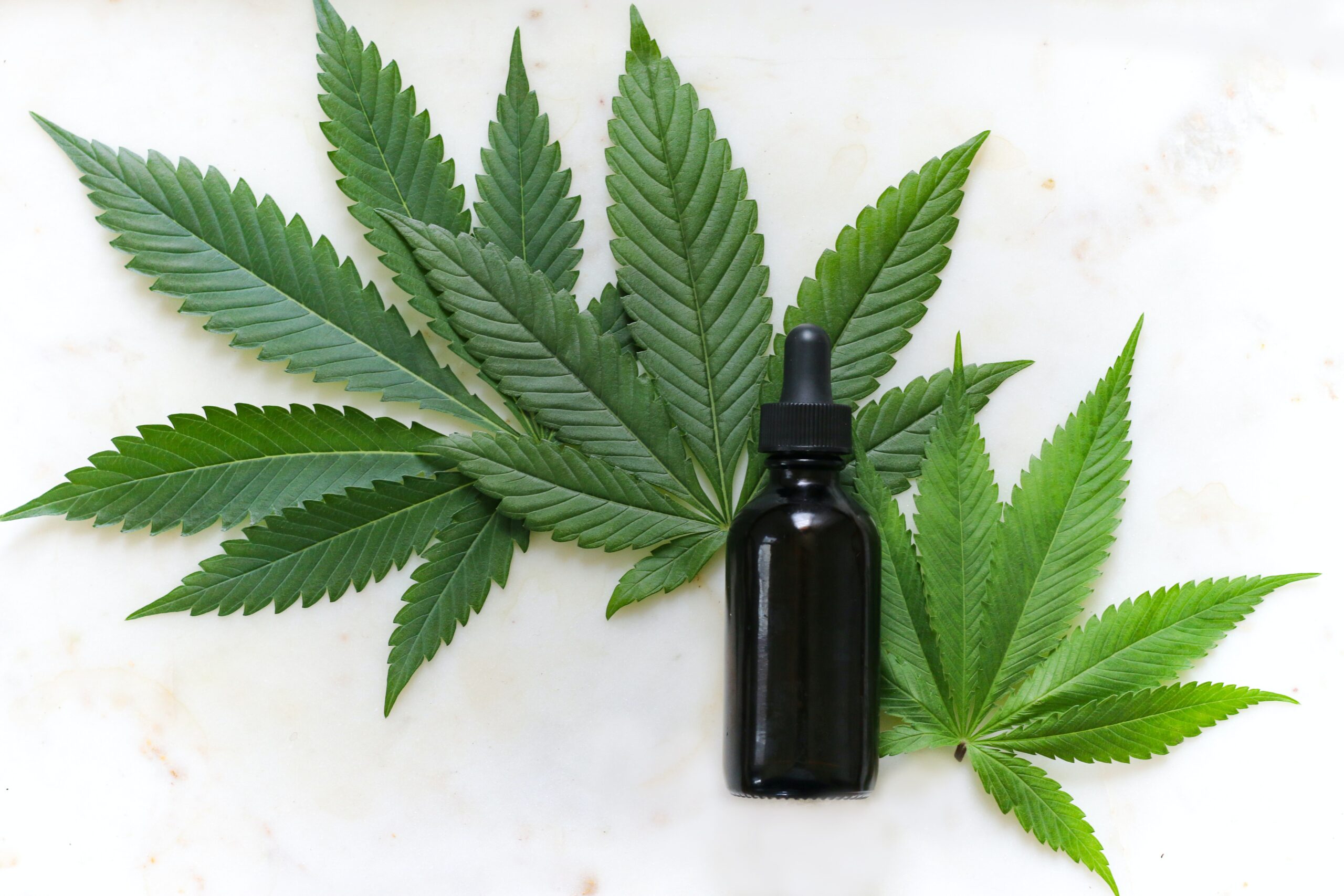The topic of CBD has grown massively over the last few years and it’s accessibility has improved dramatically across the globe. This post will aim to explain the effectiveness of CBD for chronic stress, as well as outline what CBD and stress is, the different forms of CBD and how it can be used.
What is CBD?
CBD, or cannabidiol, is a naturally occurring compound found in the cannabis plant. It is one of over 100 cannabinoids, which are the active ingredients in cannabis. CBD is not addictive or psychoactive, meaning it does not produce the “high” commonly associated with THC in cannabis.
How does CBD work?
CBD works by interacting with the endocannabinoid system (ECS), which is a system of receptors and signalling molecules that plays a role in a variety of bodily functions, including pain, inflammation, mood, sleep, and appetite.
CBD can bind to CB1 and CB2 receptors, which are proteins found on the surface of cells throughout the body. When CBD binds to these receptors, it can modulate the activity of the ECS, which can lead to a variety of beneficial effects.
The Benefits of CBD
Here are some benefits of CBD suggested by studies that can improve your health.
- Reduce anxiety: CBD has been shown to reduce stress and anxiety in both humans and animals. By positively balancing the endocannabinoid system there can be improved mood.
- Reduce chronic pain and inflammation: CBD can help to reduce inflammation in a number of ways. It can inhibit the production of pro-inflammatory cytokines, which are proteins that promote inflammation. It can also increase the production of anti-inflammatory cytokines. CBD can also help to reduce the activity of enzymes that break down cartilage, which can help to protect joints from damage.
- Improve quality of sleep: As CBD can help reduce anxiety and pain, naturally these are blockers to a good nights sleep. One study found that CBD helped people with insomnia to fall asleep more quickly and sleep for longer periods of time. Another study found that CBD helped people with chronic pain to sleep better.
- Epilepsy: CBD has been shown to be effective in treating some types of epilepsy, including Lennox-Gastaut syndrome, Dravet syndrome, and tuberous sclerosis complex. In a clinical trial, CBD was shown to reduce the number of seizures in people with Lennox-Gastaut syndrome by 50%. In another clinical trial, CBD was shown to reduce the number of seizures in people with Dravet syndrome by 39%.
- Addiction: As CBD can help to reduce the severity of withdrawal symptoms, such as anxiety, restlessness, and insomnia. This can make it easier for people to quit using drugs and alcohol. CBD has been shown to protect the brain from damage caused by drugs and alcohol. This can help people to improve their cognitive function and reduce their risk of relapse.

Forms of CBD
- Oils: CBD oil is the most common form of CBD. It is made by extracting CBD from the cannabis plant and then diluting it with a carrier oil, such as coconut oil or hemp seed oil. CBD oil can be taken orally or applied topically.
- Capsules: CBD capsules are another popular form of CBD. They are made by filling a capsule with CBD oil. CBD capsules are easy to take and they provide a consistent dose of CBD.
- Gummies: CBD gummies are a fun and easy way to take CBD. They are made by infusing CBD into a gummy candy. CBD gummies are a good option for people who don’t like the taste of CBD oil.
- Topicals: CBD topicals are applied to the skin. They are made by infusing CBD into a cream, lotion, balm, or ointment. CBD topicals can be used to treat pain, inflammation, and other skin conditions.
- Vaping: CBD can also be vaporized and inhaled. This is the fastest way to feel the effects of CBD. However, vaping is not recommended for everyone.
- Edibles: CBD can also be added to food or drinks. This is a good option for people who don’t like the taste of CBD oil or capsules.
The best form of CBD for you will depend on your individual needs and preferences. It is also important to choose a reputable brand of CBD products.
Here are some tips for choosing a reputable brand of CBD products:
- Look for a brand that has been third-party tested. This means that the products have been tested by an independent lab to ensure that they contain the amount of CBD that is advertised and that they are free of harmful contaminants.
- Look for a brand that has a good reputation. Read online reviews and talk to other people who have used the products.
- Choose a brand that is transparent about its manufacturing process. You should be able to find information about how the products are made and where the ingredients come from.
What is chronic stress?
Chronic stress is a long-term, ongoing response to stressors. It can be caused by a variety of factors, including work, relationships, finances, and health problems. When you’re under chronic stress, your body is constantly in “fight-or-flight” mode. This can lead to a number of physical and emotional problems.
How to use CBD for chronic stress?
To use CBD for chronic stress we must first understand the impact it has on our autonomic nervous system (ANS). Specifically how it manages the sympathetic nervous system and activates the parasympathetic nervous system.
By CBD interacting with the endocannabinoid system, one of the improved functions is the autonomic nervous system. Therefore CBD can:
- Increase the production of endocannabinoids: Endocannabinoids are neurotransmitters that act on the ECS to promote relaxation and reduce stress. CBD can increase the production of endocannabinoids, which can help to improve ANS function.
- Inhibit the breakdown of endocannabinoids: Enzymes called FAAH and MAGL break down endocannabinoids. CBD can inhibit the breakdown of endocannabinoids, which can help to keep levels of these neurotransmitters high.
- Activate CB1 and CB2 receptors: CB1 and CB2 receptors are proteins that are found on cells throughout the body. CBD can activate these receptors, which can lead to a variety of effects, including relaxation and reduced stress.
More research is needed to fully understand how CBD can impact our ANS. However current evidence suggests CBD reduces stress, anxiety, pain and promotes relaxation. This indicates CBD should help activate our parasympathetic nervous system (rest and digest state) and ultimately help manage chronic stress.
The most popular form of CBD is oil, ingestible forms of CBD such as oil and gummies can be good for providing general effects. Topical CBD such as balms may be more effective for targeted relief e.g. chronic ankle or wrist pain.
I’d suggest starting with a low dose daily to experiment with the effects and to experience the benefits, you can then suitably adjust the dose going forward until you find what’s best for you.
Do you have any experiences from using CBD? Let me know in the comments!



Leave a Reply